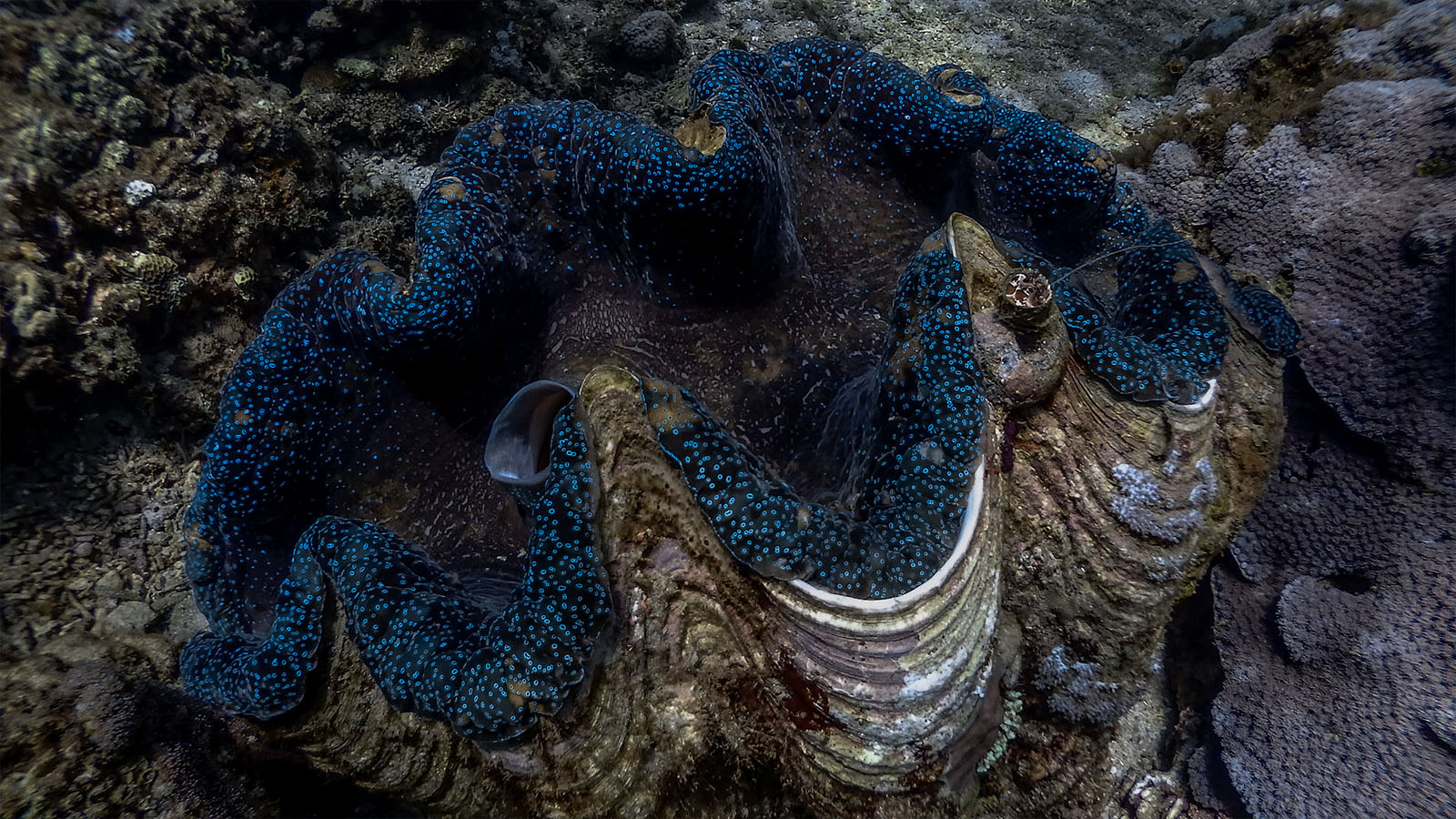

A new Yale-led study reveals that iridescent giant clams near tropical coral reefs may be the most efficient solar energy systems on Earth. These clams use a unique geometry with vertical algae columns and light-scattering cells to maximize sunlight absorption. Researchers developed a model based on clam geometry that showed a quantum efficiency of 67%, much higher than typical plant systems. The study suggests that understanding biological mechanisms like those in giant clams could inspire more efficient solar panel designs and sustainable energy technologies.